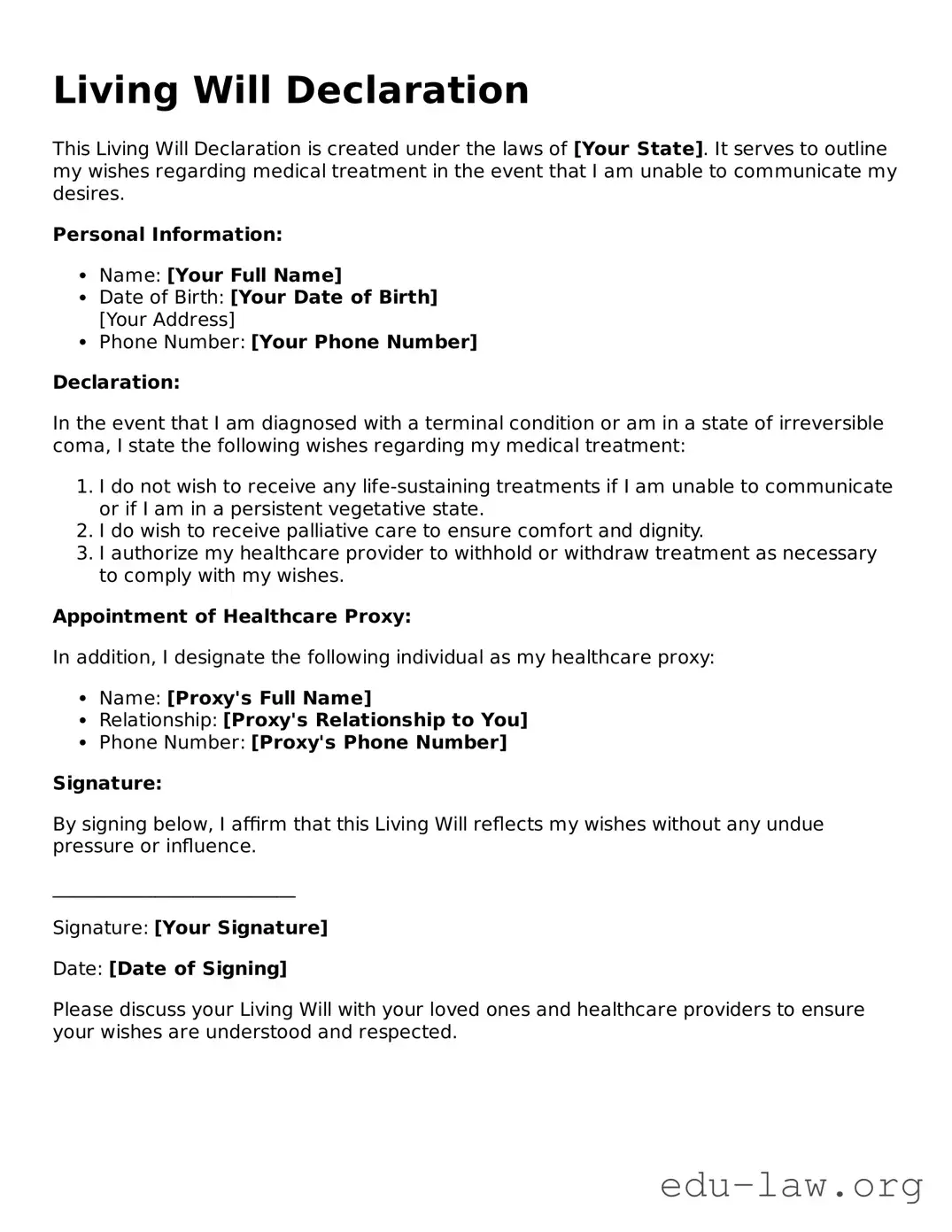What is a Living Will?
A Living Will is a legal document that outlines your preferences for medical treatment in case you become unable to communicate your wishes. It typically addresses issues such as life-sustaining treatments, resuscitation, and other health care decisions when you are incapacitated.
Why should I consider creating a Living Will?
Creating a Living Will ensures that your healthcare preferences are known and respected. It can relieve your loved ones from the stress of making difficult decisions during emotional times, and it helps medical professionals understand your wishes clearly, guiding them in providing appropriate care.
Who needs a Living Will?
Anyone over the age of 18 should consider having a Living Will. This is particularly important for individuals with specific health risks, chronic illnesses, or those who wish to plan ahead for the unexpected. It's about ensuring that all adults have a say in their medical care, regardless of their current health status.
What should I include in my Living Will?
Your Living Will should detail your preferences regarding life-sustaining treatment, like ventilators or feeding tubes. You can also express your wishes about pain management and any specific conditions or scenarios that are important to you. Personalizing it to reflect your values and desires is key.
Is a Living Will the same as a Healthcare Proxy?
No, they serve different functions. A Living Will provides directions for medical treatment, while a Healthcare Proxy, also known as a Durable Power of Attorney for Healthcare, designates someone to make decisions on your behalf if you're unable to do so. Both documents can work together to ensure your wishes are honored.
How do I create a Living Will?
You can create a Living Will by using templates available online, visiting an attorney for personalized legal assistance, or accessing forms provided by hospitals or healthcare facilities. It’s crucial to check the laws in your state, as requirements can vary.
Do I need a witness or notarization for my Living Will?
Many states require a Living Will to be signed in the presence of witnesses or notarized. This helps ensure that the document is valid and reflects your true intentions. Checking the specific requirements in your state is essential for this part of the process.
Can I change or revoke my Living Will once it’s created?
Yes, you can change or revoke your Living Will at any time, as long as you are mentally competent. It is vital to inform your healthcare provider and anyone who has a copy of your existing Living Will when making changes so that everyone stays updated on your wishes.
What happens if I don’t have a Living Will?
If you do not have a Living Will, decisions about your medical treatment may be made by your family members or, in some cases, by the courts. This can lead to confusion and disagreement during already stressful situations, making it harder for your loved ones to act in accordance with your wishes.
Where should I keep my Living Will?
Store your Living Will in a safe yet accessible place. Provide copies to your healthcare provider, family members, and anyone designated as your Healthcare Proxy. Keeping them informed will ensure your wishes are followed, relieving potential stress from loved ones during difficult times.
